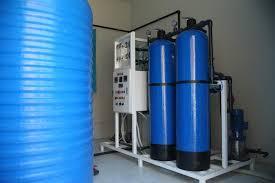How Much Does It Cost to Start a Water Plant Business?

Starting a water plant business can be a profitable venture if done right. With the increasing demand for clean, safe drinking water, more entrepreneurs are considering diving into this industry. But the big question on everyone’s mind is, “How much does it cost to start a water plant business?” In this article, we’ll break it down for you, covering everything from the initial investment to the types of water plants, benefits, and the step-by-step process of getting started.
Water is a basic necessity, and with rising concerns over water quality, many people are turning to packaged drinking water for their daily needs. Whether it’s bottled water, large containers for homes, or industrial water purification systems, the demand is high. Starting a water plant business can give you a slice of this growing market. But like any business, it requires careful planning, investment, and understanding of the costs involved.
Let’s dive into why you should consider starting a water plant business and how much you should expect to invest in it.
Why Choose a Water Plant Business?
The water plant business is one of the most lucrative industries because of the ever-growing demand for safe drinking water. Here are some reasons why it’s a smart business idea:
- High demand: Clean drinking water is always in demand, whether it’s in urban areas or rural regions. Many people rely on packaged water for their daily consumption, especially in areas where tap water is not safe.
- Long-term profitability: Once set up, a water plant can generate consistent revenue. The initial investment might be high, but with a steady customer base, you can expect regular profits.
- Scalable business: You can start small and expand as your business grows. Whether you want to start with a simple water purification unit or a full-fledged bottling plant, the water business offers room for growth.
Types of Water Plants
Before understanding the costs, it’s important to know the different types of water plants you can establish. Each type requires a different level of investment.
- Packaged Drinking Water Plant
This is the most common type of water plant. It purifies and bottles water in different sizes, typically ranging from small 500 ml bottles to larger 20-liter cans. This requires significant machinery and a robust bottling system. - Mineral Water Plant
In addition to purification, a mineral water plant adds essential minerals to the water before packaging. The equipment needed here is a bit more advanced, which means higher costs. - RO Plant (Reverse Osmosis)
This plant focuses on water purification through reverse osmosis. It’s commonly used for large-scale operations where water needs to be purified for industrial or residential purposes. - Industrial Water Treatment Plant
These plants serve industries where large amounts of water need to be purified for various uses, including production processes. The setup here is more complex, and the investment required is higher.
Benefits of Starting a Water Plant Business
There are several benefits to owning a water plant business:
- Constant demand: Water is essential, and people will always need it, making it a recession-proof business.
- Low risk: Once your plant is operational and you have the necessary permits and licenses, the risks are relatively low compared to other industries.
- High-profit margin: Depending on the type of plant you start, profit margins can be quite high, especially once your brand gains recognition.
- Sustainability: A water plant business can be eco-friendly if you focus on using recyclable materials for packaging and efficient water usage practices.
Steps to Start a Water Plant Business
Now that we’ve covered the basics, let’s break down the steps you need to follow to start your own water plant business.
1. Research and Planning
Before jumping in, you’ll need to do some market research. Understand your target market, competition, and the type of water plant that’s best suited for your location. Planning also includes creating a business plan, which will help outline your budget, marketing strategy, and revenue projections.
2. Select the Type of Water Plant
As we mentioned earlier, there are different types of water plants. Depending on your budget and market demand, choose whether you want to go for a packaged drinking water plant, mineral water plant, or an industrial water treatment facility.
3. Legal Requirements and Licenses
This is a crucial step. You’ll need to get various permits and licenses from the government to operate legally. This can include licenses from health and safety authorities, pollution control boards, and the Bureau of Indian Standards (BIS) if you’re in India.
4. Location and Setup
Finding the right location is key. Your plant should be in an area with a good source of water, easy access to transportation for distribution, and space for machinery and storage. The setup costs will include renting or buying land, constructing the plant, and installing machinery.
5. Machinery and Equipment
The major chunk of your investment will go into purchasing the necessary equipment. For a standard packaged water plant, you’ll need:
- Water purification machines
- Bottling and packaging machines
- Storage tanks
- Water testing and filtration units
The cost of machinery can range from ₹15 lakhs to ₹75 lakhs depending on the scale of your operation.
6. Water Source
You’ll need a reliable water source, which could be groundwater, a municipal supply, or a private source. Make sure the water is tested for quality and is suitable for purification.
7. Hiring Staff
Depending on the size of your plant, you’ll need to hire skilled and unskilled labor. Staff will be needed for operating machinery, quality control, packaging, and distribution.
8. Marketing and Distribution
Once your plant is ready, you’ll need to focus on branding and marketing your water products. Develop a distribution network to get your water into stores, homes, and offices. This could involve working with wholesalers, retailers, or even setting up your own delivery system.
Cost Breakdown
The cost to start a water plant business can vary greatly depending on the type and size of the plant. Here’s a rough estimate:
- Land and building: ₹10-₹30 lakhs (if purchasing)
- Machinery: ₹15-₹75 lakhs (depending on the type of plant)
- Licenses and permits: ₹2-₹5 lakhs
- Working capital: ₹10-₹20 lakhs (for operations, staff, etc.)
- Marketing and branding: ₹2-₹5 lakhs
In total, you can expect to invest anywhere from ₹30 lakhs to ₹1 crore or more, depending on the scale of the business.
Conclusion
Starting a water plant business is a profitable venture with a promising future. The initial costs might seem high, but with proper planning, market research, and a solid business strategy, you can recover your investment and turn a healthy profit in the long run. The key is to choose the right type of water plant, obtain all necessary licenses, and invest in good-quality machinery.
FAQs
How much profit can I expect from a water plant business?
Profit margins in the water plant business can range from 30% to 50%, depending on factors like the type of water plant, production scale, and market demand.
Is the water plant business scalable?
Yes, you can start small and scale your business as demand grows. You can add more machinery, increase production capacity, or even expand into new markets.
What are the legal requirements for starting a water plant?
You’ll need permits from health and safety authorities, pollution control boards, and BIS certification (if applicable). The specific requirements may vary by location.
Can I start a water plant business at home?
While you might be able to start a small-scale RO plant or water filtration unit at home, a full-fledged packaged drinking water plant requires industrial space and proper setup.









